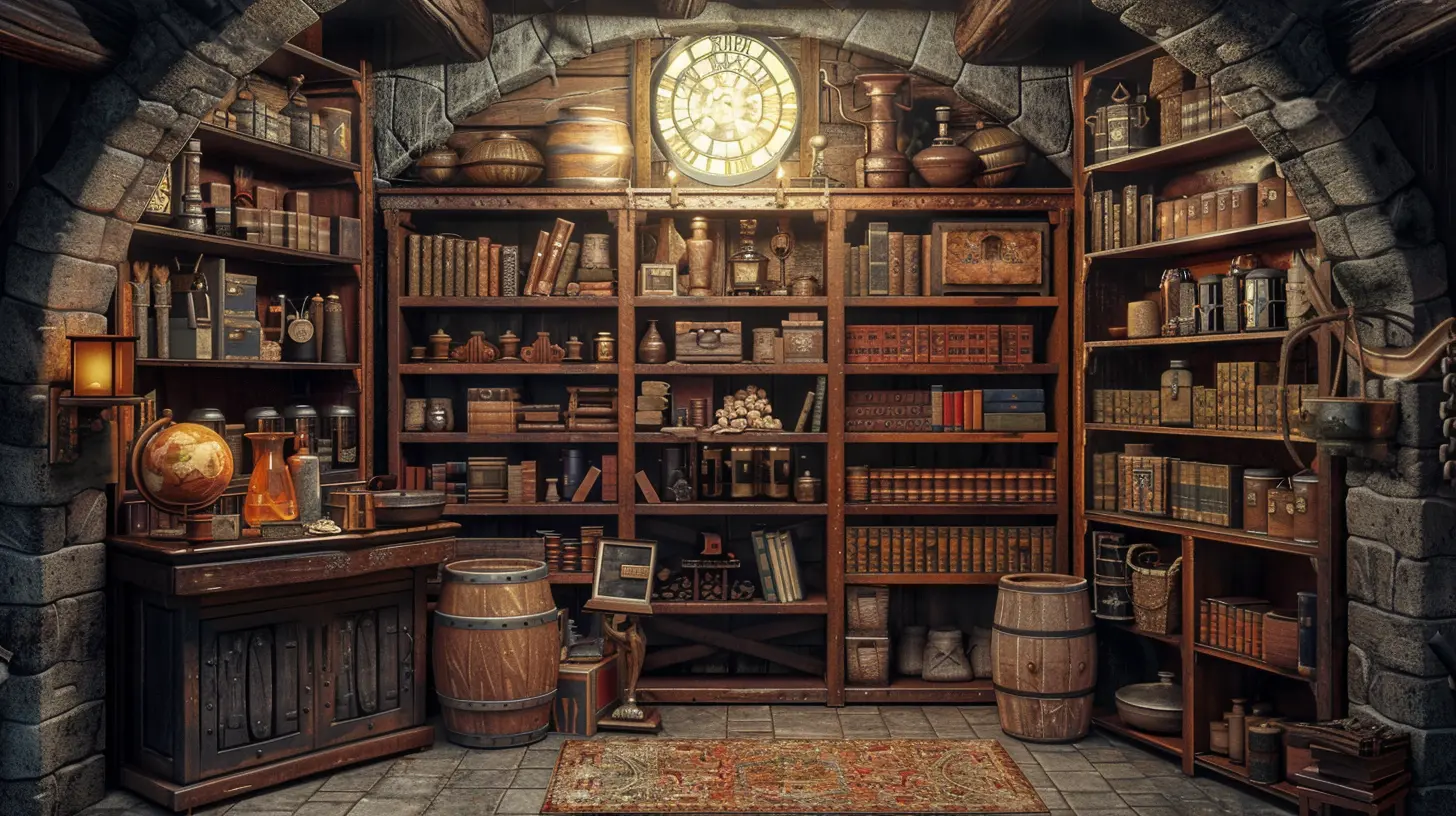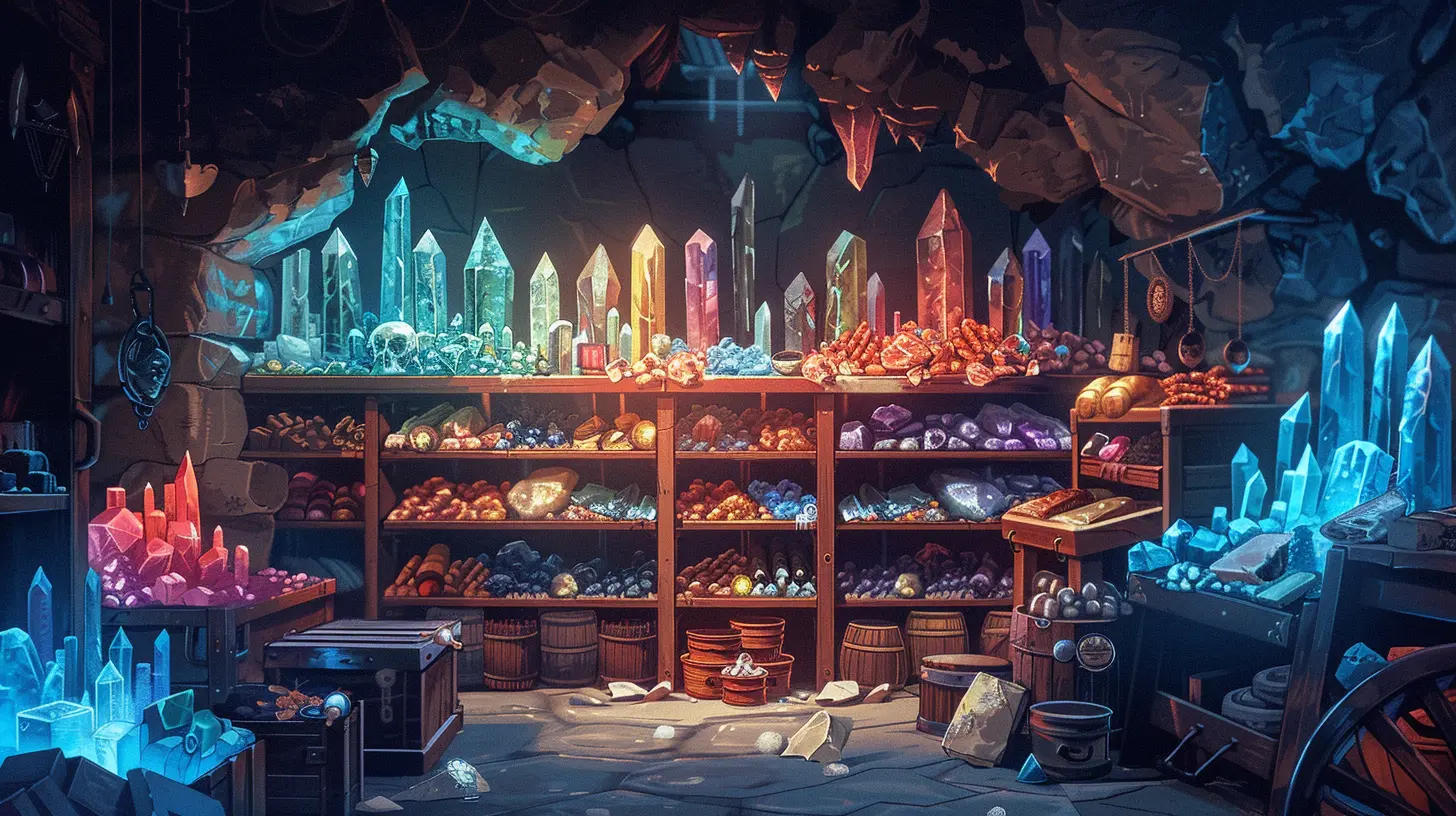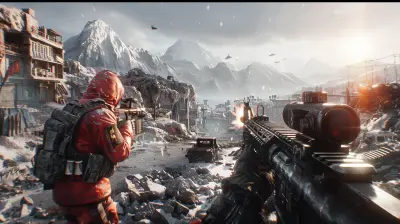Why Inventory Management is More Important Than You Think
22 September 2025
If you’ve ever played a survival game, you know the thrill (and sometimes horror) of a cluttered inventory. You’re in the middle of a fight, trying to heal, but your backpack is a black hole of junk and half-used items. Real-life inventory management isn’t that different — it’s just way more expensive when it goes wrong.
Inventory management sounds boring, right? Just counting stuff and putting it on shelves? Not quite. Whether you're running an online game store, developing a title with in-game resource systems, or managing a physical stock of hardware — keeping track of your “loot” can be the difference between chaos and control, profit and loss.
Let’s dive into why inventory management is way more important than most people realize — especially in the gaming world.
What Is Inventory Management, Anyway?
At its core, inventory management is all about tracking and controlling the stuff you own — whether it's digital assets, physical goods, or components in a game. It’s about knowing what you have, where it is, how much it's worth, and whether you need more (or less) of it.Think of it as the backpack system in a game. You’ve got limited space, and your success often depends on what you carry. Carry too much, and you’re slow. Too little, and you’re vulnerable. The same concept applies to businesses and game design. It's all about balance.
Why Inventory Management Matters (More Than You Think)
1. It Keeps You From Losing Money
Let’s face it: poor inventory management can straight-up burn your cash. Got too much stock? You’re wasting money on space and maintenance. Got too little? You’re losing sales because you can’t meet demand.In gaming terms, it’s like having a storage stash full of potions you never use while you're desperately low on ammo. Smart inventory means smarter decisions — and profits.
2. It Makes Your Customers Happier
Nobody likes out-of-stock messages. Whether it's a rare game controller or limited edition merch, players and customers expect you to have what they want, when they want it.Good inventory management ensures that your digital shelves match your real ones. Less frustration means better reviews and repeat business.
3. It Speeds Everything Up
Think of inventory management as a well-organized loot chest. When everything is sorted and labeled, you don’t have to dig for what you need. For businesses, this means faster shipping, better fulfillment, and smoother operations. For game developers, it means cleaner code, better UX, and fewer headaches.
The Role of Inventory in Game Design
Inventory systems aren’t just for real-world businesses — they’re key mechanics in many games. From RPGs to survival sims, inventory management can shape the gameplay experience in powerful ways.Games Are Teaching Tools
Ever played Minecraft, DayZ, or Resident Evil? These games teach players prioritization and strategic thinking, all through the lens of inventory. They force players to make tough choices: Do you carry more food or an extra weapon? Drop this rare item or keep it for later?By mimicking real-world inventory challenges, games help players understand the importance of resource management — in a fun (and stressful) way.
Limited Capacity Creates Tension and Strategy
When players have limited inventory space, every decision becomes meaningful. That pressure creates tension and depth. Managing a tiny item grid in a horror game becomes just as important as battling monsters.Game designers who ignore inventory systems miss a huge opportunity to add complexity and immersion.
Common Inventory Management Pitfalls (And How to Avoid Them)
Even big companies mess this up. But you don’t have to. Here are some traps to watch out for.1. Overstocking
It might feel safer to have more stock than you need — but overstocking ties up your cash and fills your storage with items that may never sell. Think of it like hoarding items in a game — only to find they're completely useless in the endgame.👉 Fix: Use demand forecasting tools. Look at trends, past sales, and seasonality to keep your inventory lean.
2. Understocking
The flip side is even more painful. Imagine hyping up a massive game sale — only to run out of stock in the first hour. Missing out on potential sales sucks, and it can damage your reputation.👉 Fix: Know your reorder points and keep some buffer stock for popular items.
3. Poor Tracking
If you don’t know what you have, you’ll constantly make mistakes — double orders, missed shipments, and wasted money.👉 Fix: Use an inventory management system or even a good ol’ spreadsheet (if you're small-scale). Accuracy is everything.
Inventory and the Gaming Industry: A Match Made in Data Heaven
Let’s talk numbers. The gaming industry is massive — we’re talking billions of dollars in sales, millions of products, and a never-ending stream of updates.Without solid inventory control, gaming businesses can’t keep up.
For Physical Game Stores
Whether you sell retro cartridges or the latest AAA blockbuster, having tight control over your physical inventory means you can:- Avoid dead stock (games nobody wants)
- Prevent theft or misplacement
- Track trends (what's hot, what’s not)
- Automate reorders
For Merch Sellers
Selling game-themed hoodies, figures, or posters? Strong inventory systems help you level-up your logistics. You’ll avoid selling out too fast (or worse, too slow), and ship orders faster.For Developers (Especially Indies)
If you’re integrating crafting systems, loot drops, or gear upgrades, you’re designing an inventory system — whether you know it or not. A user-friendly inventory can make or break your game. Tracking player-owned items, managing scarcity, and balancing the item economy are just as important as your game’s story or graphics.Useful Tools for Managing Inventory (Without Losing Your Mind)
You don’t need a warehouse full of robots to keep track of stock. Here are a few tools worth checking out:1. Inventory Management Software
Platforms like Zoho Inventory, TradeGecko (now QuickBooks Commerce), or even Shopify’s built-in tools can help smaller game retailers manage products, orders, and reports in one place.2. ERP Systems
Big players? You’ll want an Enterprise Resource Planning (ERP) system. These beasts connect inventory to every part of your business — from accounting to marketing. Think of it like an MMO guild bank but for your company.3. Version Control for Game Devs
If you’re managing in-game items, GitHub and Unity’s asset management tools can help keep your item ecosystem organized and balanced across platforms.Best Practices for Inventory Management (Gaming Style)
Let’s break it down like a mini-game challenge. Here are some tips to keep your inventory in top shape:🎯 Set Inventory Thresholds
Know your minimum and maximum levels. Auto-alerts keep you from running dry or drowning in extras.
📊 Track Sales and Trends
Use analytics to see what sells and when. That way, you’re not restocking last month’s hype item that nobody wants anymore.
🧮 Cycle Counts
Instead of auditing your entire stock once a year, do mini-counts regularly. It’s less painful and way more accurate.
📦 FIFO (First In, First Out)
Use the oldest stock first. Prevents expired or obsolete items from clogging up your shelves.
📱 Go Mobile
Use barcode scanners or mobile apps to track inventory on the go. No more guesswork.
Inventory Isn’t Just a Back-End Thing — It’s Part of the Player Experience
In-game or in reality, inventory affects how your players and customers feel about your brand.An awesome game with a clunky inventory is frustrating. A high-demand item that’s never in stock? Also frustrating.
People want smooth experiences. Clean menus. Fast shipping. Useful sorting. Easy access. Whether it’s health potions or handheld consoles — how you manage and design your inventory matters.
The Future of Inventory Management in Gaming
With AI, machine learning, and blockchain tech on the rise, the future of inventory management is starting to look sci-fi — and that’s a good thing.Imagine smart systems that automatically restock based on player behavior. Or supply chains driven by real-time data from your eCommerce store. Virtual inventory in the Metaverse? Yup, that’s coming too.
The better your inventory game now, the easier it’ll be to adapt to what’s coming.
Final Thoughts
So, yeah — inventory management isn’t just some boring behind-the-scenes task. It’s a strategic powerhouse. Whether you’re running a game store, building worlds, or just trying to keep your merch in check, inventory is at the heart of your success.Get messy with it. Analyze it. Fix it. Love it or hate it — it's a boss fight you can't skip.
And who knows? Mastering your inventory might be the real endgame.
all images in this post were generated using AI tools
Category:
Rpg GamesAuthor:

Leif Coleman
Discussion
rate this article
1 comments
Bernadette Martin
Who knew organizing your virtual sock collection could be a life lesson? Inventory management: the only time you can spend hours rearranging digital items while convincing yourself it’s a crucial part of your heroic quest. Next stop, decluttering my real-life closet!
September 30, 2025 at 3:04 PM

Leif Coleman
Absolutely! Inventory management teaches us valuable skills like organization and prioritization, which can transform both our virtual and physical spaces. Happy decluttering!


